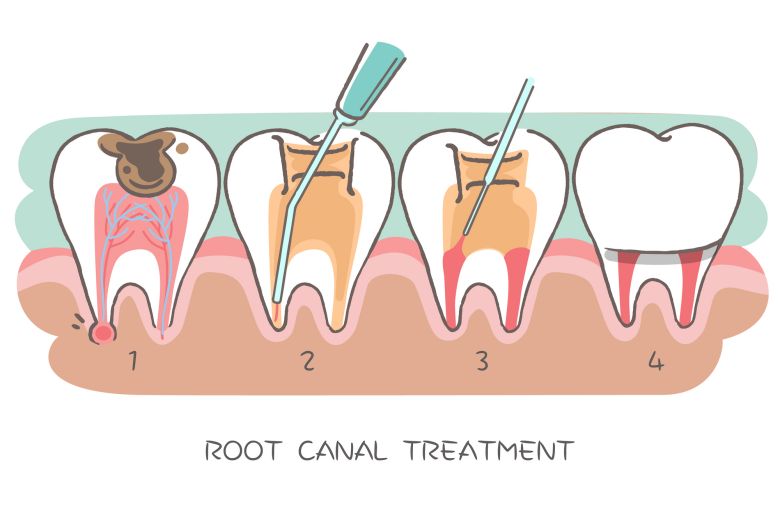
Root Canal Treatment
What is a root canal treatment?
A root canal treatment, also known as endodontics, is a dental procedure that is performed to repair and save a tooth that has become infected or damaged in the root area. The root canal is the area in the tooth that contains the pulp, which is the soft tissue that contains nerves, blood vessels, and connective tissue.
When the pulp becomes infected or damaged, it can cause severe pain and swelling, and if left untreated, it can lead to the formation of an abscess or the loss of the tooth.
A root canal treatment involves removing the infected or damaged pulp from the tooth and filling the space with a special material to prevent reinfection.
What is the process?
The procedure usually requires several visits to the dentist. The first visit is to assess your tooth, take x-rays, and decide if a root canal treatment is the best option.
If so, the dentist will numb the area and remove the pulp through a small hole in the top of the tooth. Once the pulp is removed, the dentist will clean the root canals and shape them to receive the filling material. As the pulp and nerve will have been removed, there will be no more pain after the first visit.
Subsequent visits will involve further cleaning of the root canal, and filling the tooth with a special material before sealing with a filling or crown.

Why have a root canal treatment?
This dental treatment has a high success rate and can save a damaged or infected tooth from extraction, helping to maintain the function and appearance of the natural teeth.
Is it painful?
The perception of pain during a root canal treatment can vary from person to person. However, with modern techniques and local anesthesia, the treatment is generally not considered to be painful.
During the treatment, your dentist will use a local anesthetic to numb the area around the tooth, which will make the procedure more comfortable. Some people may feel a little pressure or discomfort during the procedure, but it should not be painful.
What happens after?
After the procedure, it is common to experience some mild discomfort or sensitivity, but this can usually be managed with over-the-counter pain relief medication. Your dentist may also prescribe medication to help manage any pain or discomfort if needed at all.
Important
It is important to note that delaying or avoiding a root canal treatment can lead to more severe pain and potential complications, such as infection or tooth loss. So, it is always best to follow your dentist’s recommendations and undergo the treatment if it is needed to prevent further damage or infection.
We’re here to help, so if you are experiencing tooth pain, please contact us.
Avon Valley Dental Centre
59 Duke Street, Northam WA 6401

For appointments, information or dental emergencies:




